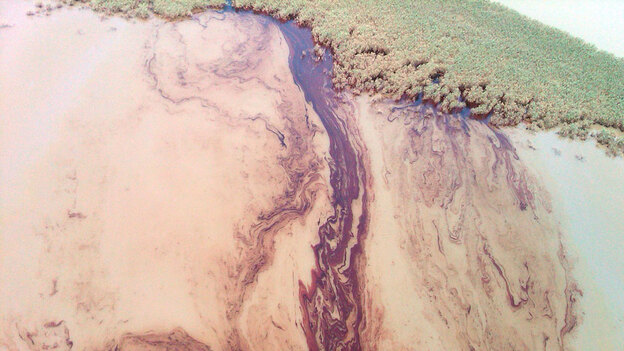The Marcellus Shale formation spans
 four states - New York, Pennsylvania, Ohio, and West Virginia. It is an ancient formation of sedimentary rock, rich in fossils, and rich in natural gas. Estimates place the possible gas volume at over 500 trillion cubic feet. Given the current economic crisis in the state, nation, and around the globe, the United States's dependence on foreign oil, and the reduced greenhouse gas emissions from natural gas, the prospect of this massive fossil fuel source is very attractive. How do they get it though?
four states - New York, Pennsylvania, Ohio, and West Virginia. It is an ancient formation of sedimentary rock, rich in fossils, and rich in natural gas. Estimates place the possible gas volume at over 500 trillion cubic feet. Given the current economic crisis in the state, nation, and around the globe, the United States's dependence on foreign oil, and the reduced greenhouse gas emissions from natural gas, the prospect of this massive fossil fuel source is very attractive. How do they get it though?In short, companies use a procedure known as hydro-fracking or fracking to inject upwards of millions of gallons of a mixture of water, sand, and chemical lubricants to force natural gas out of its deposits thousands of feet below the Earth's surface. This is the rub. The ecological side effects of the gas rush might be scary to say the least. Recently, a well blew in Clearfield County sending gas 75 feet into the air and contaminating the immediate area. That incident prompted a freeze at that site run by C.C. Forbes. This morning, WPSU reported that that the blown well had contaminated a local waterway. This explosion, mixed with Rex Energy's fine for encroaching on a local wetland, recent natural gas accidents in West Virginia and Texas, and of course the BP disaster in the Gulf have prompted already vigorous environmental advocacy groups to demand some accountability.
But proponents say these are isolated incidents and that the economic benefit to the region could be huge. Pennsylvania government, communities, businesses, and individuals stand to make billions upon billions of dollars they say. Communities have had contentious forums that have pitted neighbors against each other over water and land conservation, property rights, wealth, and regional control. Universities from Penn State to Bucknell have hosted talks.
So what's the rub? What's really going on?
Today we will get into this mess with Hannah Abelbeck of Voices of Central Pennsylvania, an independent newspaper written by and for central Pennsylvanians. She has done a few stories for recent issues and gotten to know people from around the state.
Listen today from 5-6 pm on the Lion 90.7 fm.
* You can backtrack through this blog's previous posts to see other media on the Marcellus Shale.
** Peter Buckland has written several stories for Voices.
*** This show was featured in the May issue of Voices.


